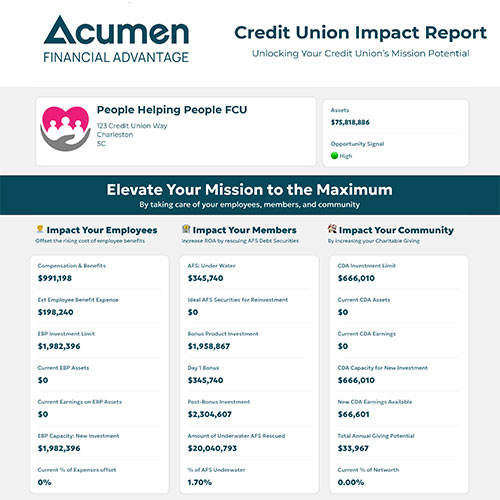What is Employee Benefits Pre-Funding?
(And how can it benefit your organization?)
Employee Benefits Prefunding (EBP) is a strategy used by organizations, including tax-exempt entities like non-profits, to set aside or invest funds in advance to cover future employee benefit obligations. This proactive financial planning approach is designed to ensure that funds are available when benefits such as health insurance, retirement plans, or other post-employment benefits come due.
Key Features
- Prepayment of Obligations: Funds are allocated in advance to meet future liabilities.
- Investment Opportunities: Funds can be invested to generate returns, often in accounts or vehicles aligned with the organization's risk tolerance and goals.
- Budgetary Stability: EBP creates predictability in managing benefits-related expenses over time.
- Compliance: For tax-exempt organizations, EBP arrangements must align with IRS regulations, ensuring investments are appropriate and maintain the organization's exempt status.
Key Benefits for Tax-Exempt Organizations
- Enhanced Financial Security: Prefunding reduces the risk of being unprepared for rising benefit costs, ensuring obligations to employees are met without straining operational budgets.
- Cost Savings: By investing prefunded amounts, organizations can offset future liabilities with returns, potentially reducing overall costs associated with providing benefits.
- Cash Flow Management: Prefunding helps smooth out cash flow by avoiding sudden, large payouts for benefits during times of financial uncertainty.
- Employee Retention and Recruitment: Demonstrating a solid commitment to employee benefits through prefunding can enhance an organization’s ability to attract and retain top talent in a competitive market.
- Mission Alignment: By securing funds for employee benefits, tax-exempt organizations can allocate other resources more predictably toward their mission-driven activities.
- Reduced Volatility: Prefunding mitigates the impact of economic fluctuations or unexpected cost increases in benefit programs, creating stability in the organization’s financial planning.
Considerations
- Regulatory Compliance: Tax-exempt organizations must ensure prefunding plans adhere to IRS and other regulatory guidelines.
- Governance: Proper oversight and reporting are essential to maintain transparency and accountability.
- Investment Strategies: Investments should be managed conservatively to align with the organization’s fiduciary responsibilities and risk tolerance.
By implementing an EBP strategy, tax-exempt organizations can better balance their financial commitments, maintain operational stability, and support their mission sustainably over the long term.
Explore Our Solutions
Discover how Acumen Financial Advantage helps organizations strengthen financial performance, reinforce leadership continuity, and steward resources for long-term value—building durable advantage in service of those you support.

